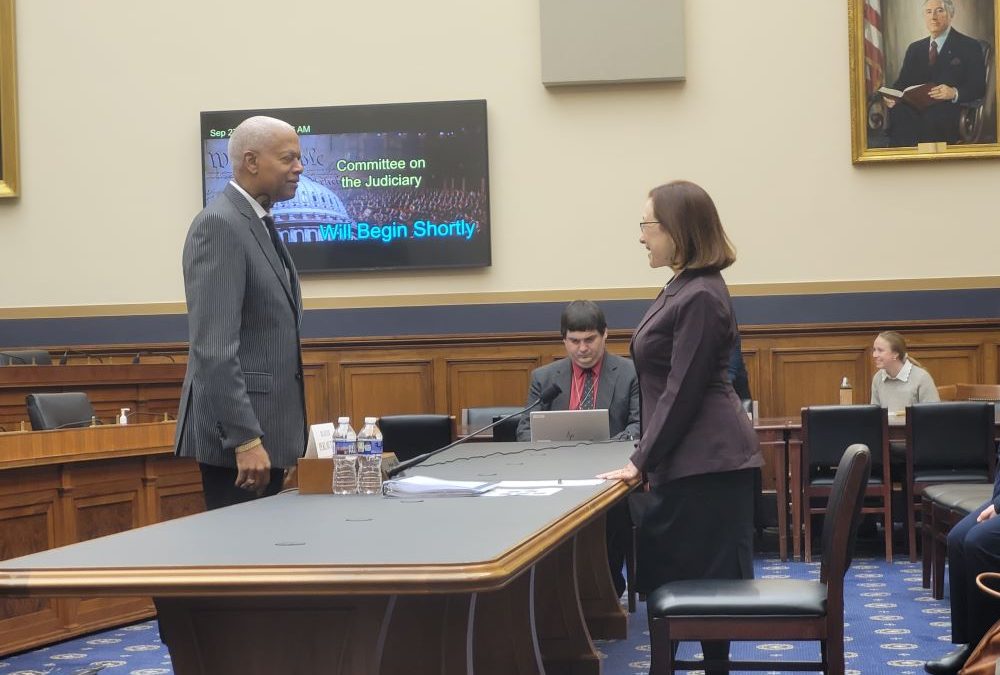WASHINGTON – House members on Wednesday discussed how the artificial intelligence revolution has changed the work of the U.S. Copyright Office during a hearing of a House Judiciary subcommittee.
“What does it mean for human beings to create?” asked Rep. Hank Johnson, D-Ga., the ranking member of the subcommittee on Courts, Intellectual Property, and Internet. “In a very real way, this question is the subject of our hearing today.”
In the era of AI, it is a question that is no longer a philosophical discussion, but one with real world implications for American families and businesses, Johnson said.
As the continually emerging technology remains a persistent source of new questions, the U.S. Copyright Office has made efforts to adapt and adjust to the new reality of AI generated content and what it means for creators, innovators and the nature of the office’s own work.
Earlier this year, the Copyright Office issued a new guide for submitting works containing AI generated content. The guide specified that works had to contain “human authorship” – in short, anything created solely by AI could not receive a copyright. This position, which Register of Copyrights and Director of the U.S. Copyright Office, Shira Perlmutter, described as “long-standing,” was reaffirmed in March following a decision by a U.S. District Court in Wasington, D.C.
Additionally, human-authored works produced by or with the assistance of AI would need to disclose the AI generated content as part of the new copyright registration.
“We have moved quickly to address the copyright implications of artificial intelligence,” Perlmutter said, highlighting a series of public listening sessions and webinars to speak with interested parties about AI and copyrighting. In August, the office issued a notice of inquiry seeking public comment on AI-related matters, in order to help assess what, if any, regulatory or legislative action should be taken.
Within the feedback, which is still being processed and will continue to be open for public comment until Oct. 18, Perlmutter noted a large number of comments from individual creators. Many brought forth concerns over the use of their intellectual property being used by AI programs, as well as worry over potential limitations being proposed on the use of AI as a tool.
“We do not want to limit AI from participating in the further promotion of intellectual property that is useful, in not only copyright but also in patent. But we must make sure that that is an incentive and not simply a reward for the first to turn on a machine,” said Rep. Darrell Issa, R-Calif., who chairs the subcommittee.
Later, Issa posed the question – if he were to write a book, and then feed it to an AI program that enhanced things like spelling, word use, and phrases and the book came back with the same intent, but with 40% of the content altered by AI, what would happen? Would it qualify as original content? Would a disclaimer be necessary? Would it be rejected?
The answer, Perlmutter said, is hard to say.
“These are not easy decisions. These are not easy lines to draw,” she said. “We’re looking at individual applications and making case-by-case determinations… We are learning more and more each day as we look at more and more of these applications and make decisions on them.”
Some of those decisions, Perlmutter noted, will be challenged in court and undergo review but for now, her office functions as a sort of “natural laboratory” in examining where human contribution ends and AI-generated content begins.

